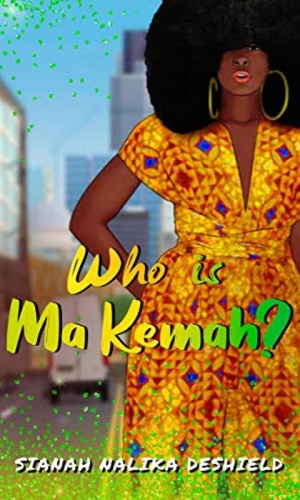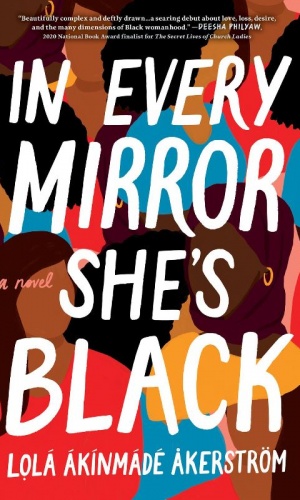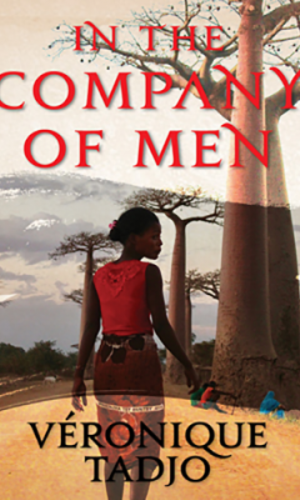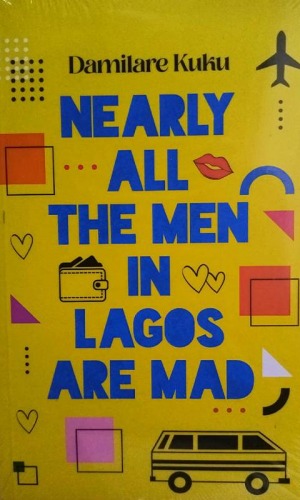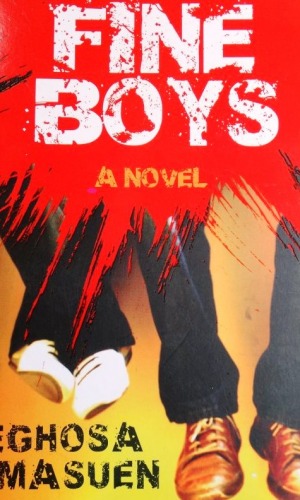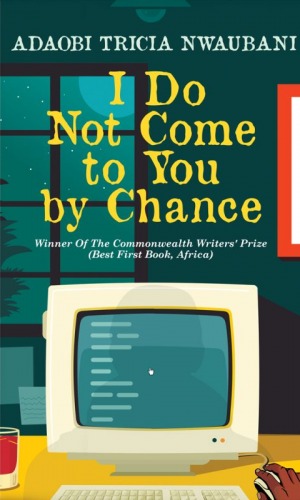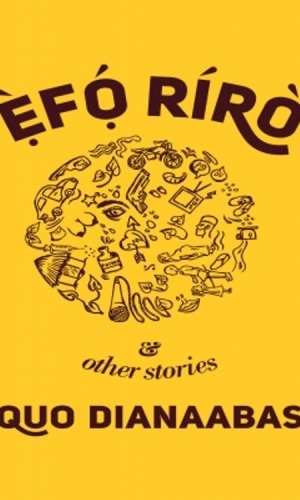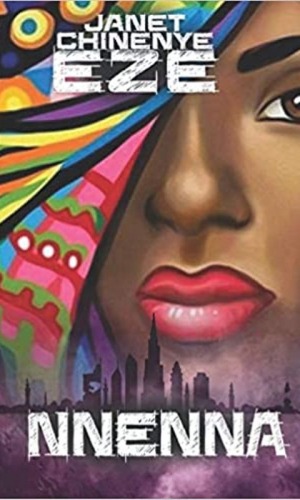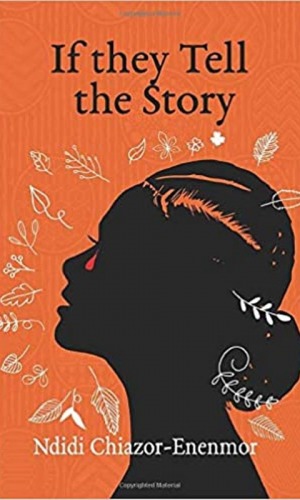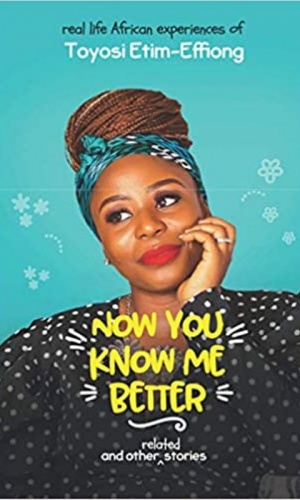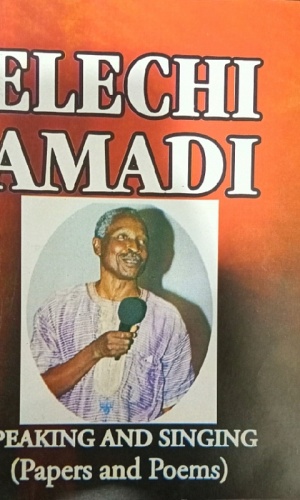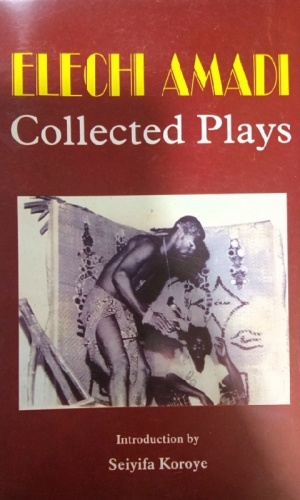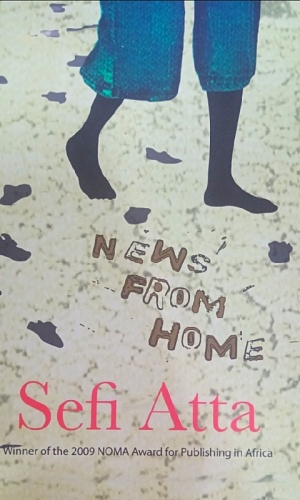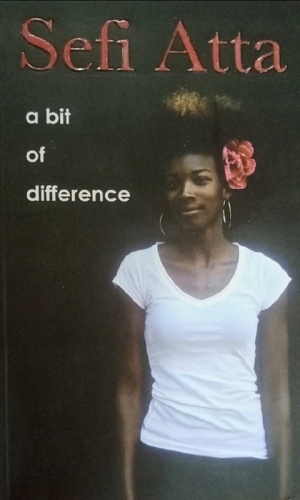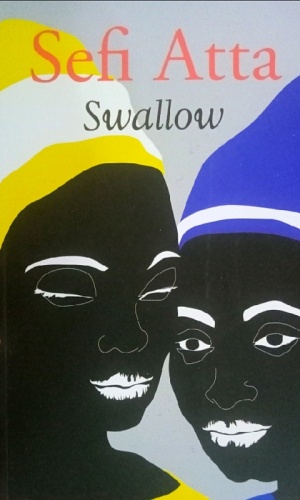-
Who is Ma Kemah
Born in war-torn Liberia, Ma Kemah George has had a series of bad luck in the course of her young life. Among other troubles, she was molested as a child and the only thing that got her through her childhood sane was her best friend, Vincent, who later became her fiancé. Then he died a month after their engagement, and she had to start the next chapter of her life alone as an international student in New York. Her plan was simple. Get over her dead fiancé while getting a master’s degree in the USA. But during her first thirty minutes in the land of the free, she supposedly became engaged to America’s beloved baseball star, Warren McAllister. Now Twitter is going crazy with #whoisMaKemah?
₦4,000 -
Lagos to London
Remi Coker and Nnamdi Okonkwo leave the shores of Nigeria full of hope in search of greener pastures in London. Remi from the prestigious Coker family is expected to return home after her law degree to run the family law firm and Nnamdi, frustrated by the federal university strikes plans to escape Nigeria and never return.
₦5,100 -
In Every Mirror She’s Black
Three Black women are linked in unexpected ways to the same influential white man in Stockholm as they build their new lives in the most open society run by the most private people.
Successful marketing executive Kemi Adeyemi is lured from the U.S. to Sweden by Jonny von Lundin, CEO of the nation’s largest marketing firm, to help fix a PR fiasco involving a racially tone-deaf campaign. A killer at work but a failure in love, Kemi’s move is a last-ditch effort to reclaim her social life.
A chance meeting with Jonny in business class en route to the U.S. propels former model-turned-flight-attendant Brittany-Rae Johnson into a life of wealth, luxury, and privilege—a life she’s not sure she wants—as the object of his unhealthy obsession.
And refugee Muna Saheed, who lost her entire family, finds a job cleaning the toilets at Jonny’s office as she works to establish her residency in Sweden and, more importantly, seeks connection and a place she can call home.
₦6,100 -
Five Brown Envelopes
Nduka “Kaka” Kabiri’s company is in trouble. A legacy inherited from his late father, Construction Lions Limited will be liquidated after their multi-billion-dollar project in Northeastern Nigeria is seized and destroyed by terrorists.
To save his company, Kaka’s bid must win a World-Bank- sponsored rail project tender. This contract will pay off all his debt and make Kaka one of the richest men in Africa. The stakes are high, and greedy, powerful, dangerous men in the corridors of power—and some close enough to walk the corridors of his own home—will do anything to stop Kaka from winning the rail tender.
Things become dangerous for him when a beautiful seductress, Tsemaye, appears.
₦5,000 -
The Law Is An Ass
They say fiction is an extension of the factual. Niran Adedokun’s The Law is an Ass, features nine short stories that seem like fictional manifestations of the concerns in his second book, The Danfo Driver in All of Us. In this collection, Niran continues his jeremiad about Nigeria, with stories about sexual shenanigans (both real and imagined), corruption, poverty and deprivation as well as a heady cocktail of other problems that beset a third world country like Nigeria.
₦3,800 -
Radio Sunrise
Ifiok, a young journalist working for a public radio station in Lagos, Nigeria, aspires to always do the right thing but the odds seem to be stacked against him. Government pressures cause the funding to his radio drama to get cut off, his girlfriend leaves him when she discovers he is having an affair with an intern, and kidnappings and militancy are on the rise in the country.
₦5,500 -
In The Company Of Men
Two boys venture into a nearby forest, to hunt for bats and cook their prey over an open fire. Within a month, they are dead, bodies ravaged by an insidious disease. Compounding the family’s grief, experts warn against touching the sick. But this caution comes too late: the virus spreads rapidly.
In a series of moving snapshots, Véronique Tadjo illustrates the terrible extent of the West African Ebola epidemic of 2014, through the eyes of those affected in myriad ways: the doctor who tirelessly treats patients day after day in a sweltering tent; the student who volunteers to work as a gravedigger while universities are closed; the grandmother who agrees to take in an orphaned boy cast out of his village. And watching over them all is the ancient and wise Baobab tree, mourning the dire state of the earth yet providing a sense of hope for the future.
₦4,500 -
Prince of Monkeys
Growing up in middle-class Lagos, Nigeria during the late 1980s and early 1990s, Ihechi forms a band of close friends in his neighborhood. They discover Lagos together as teenagers whose differing ideologies come to the fore over everything from film to football, Fela Kuti to God, sex to politics. They remain close-knit until Ihechi’s girlfriend, is killed in an anti-government riot.
Exiled by his concerned mother, Ihechi moves in with his uncle’s family, where he struggles to find himself outside his former circle of friends. Ihechi eventually finds success by leveraging his connection with a notorious prostitution linchpin and political heavyweight, and earning favor among the ruling elite.
But just as Ihechi is about to make his final ascent into the elite political class, he encounters his childhood friends and experiences a crisis of conscience that forces him to question his motives and who he wants to be.
₦3,300 -
Nearly All The Men In Lagos Are Mad
A collection of twelve short stories.
₦10,000 -
-
Fine Boys
In his second novel, Eghosa Imasuen presents the everyday life of a Nigerian university student against the backdrop of the pro-democracy riots of the 1980s and ?90s, the lost hopes of June 12th, and the terror of the Abacha years.
₦5,600 -
I Do Not Come To You By Chance
As first son and graduate, Kingsley Ibe has a load of responsibilities resting on his skinny shoulders. But times are bad in Nigeria, and life is hard. Unable to find work, Kingsley cannot take on the duty of training his younger siblings, nor can he provide his parents with financial peace in their retirement. And then there is Ola his girlfriend, the sugar in Kingsley’s tea. It does not seem to matter that he loves her deeply; he cannot afford her bride price.
₦12,000 -
Efo Riro
This collection is set primarily within Nigeria, and the stories here cover varied social themes including spousal abuse, religious dogma, love, bravery, betrayal and vengeance.
₦3,000 -
Secret Places
In this contemporary Christian novel, readers would see how love and faith erode with promises not kept and understand that no matter how far we run away from our problems, it’s impossible to hide from God’s presence
₦3,500 -
Nnenna
Nnenna grows up longing for love until she meets and falls in love with Tobenna. Then, she learns that love is not always far…
₦3,000 -
If They Tell the Story
Rated 4.00 out of 501₦3,300 -
Now You Know Me Better
Now You Know Me Better is a collection of non-fictional short stories. Told in a witty, friendly voice, these stories revolve around the author’s life experiences—from being torn between the two extremes of her parents’ family backgrounds to finding her path as a young woman while dealing with loss, uncertainty, and growing into herself.
₦5,000 -
The Last Wedding Anniversary
Condition -Very good
₦3,100 -
Speaking and Singing: (papers and Poems)
Speaking and Singing: (papers and Poems)
₦1,600 -
Collected Plays (African Writers Series)
Collected Plays
₦2,400 -
News from Home
Winner of the 2009 NOMA Award for Publishing in Africa
From Zamfara up north to the Niger delta down south, with a finale in Lagos, this collection of stories and a novella respond to and amplify the newspaper headlines in a range of Nigerian voices.
₦3,200 -
A Bit of Difference
At thirty-nine, Deola Bello, a Nigerian expatriate in London, is dissatisfied with being single and working overseas. Deola works as a financial reviewer for an international charity, and when her job takes her back to Nigeria in time for her father’s five-year memorial service, she finds herself turning her scrutiny inward. In Nigeria, Deola encounters changes in her family and in the urban landscape of her home, and new acquaintances who offer unexpected possibilities. Deola’s journey is as much about evading others’ expectations to get to the heart of her frustration as it is about exposing the differences between foreign images of Africa and the realities of contemporary Nigerian life.
₦7,500 -
Swallow
A new novel from the winner of the Wole Soyinka Prize for African Literature
It is the mid-1980s in Lagos, Nigeria, and the government’s War against Indiscipline is in full operation. Amid poverty and tight rules and regulations, women especially must sacrifice dignity and safety in order to find work and peace. Tolani Ajao is a secretary working at Federal Community Bank.₦7,500 -
The Bead Collector
Lagos, January 1976, six years after the Nigerian Civil War. A new military regime has been in power for six months, but rumours are spreading that a counter-coup is imminent. At an art exhibition in the affluent Ikoyi neighbourhood, Remi Lawal, a Nigerian woman who runs her own greeting-card shop, meets Frances Cooke, who introduces herself as an American art dealer, in Nigeria to buy rare beads. They become friends and over the next few weeks confide in each other about their aspirations, loyalties, marriage, motherhood – and Nigeria itself, as hospitable Remi welcomes the enigmatic Frances into her world. Remi’s husband, Tunde, naturally suspects Frances – like any American in Lagos – of gathering intelligence for the CIA, yet she is unconvinced. Cynical about the country’s unending instability, and alienated by the shallowness of the city’s elite, she willingly shares her views with Frances. But the February 13 assassination of General Muhammed prompts Remi to reconsider one particular conversation with her new acquaintance in a different light.
₦4,000

